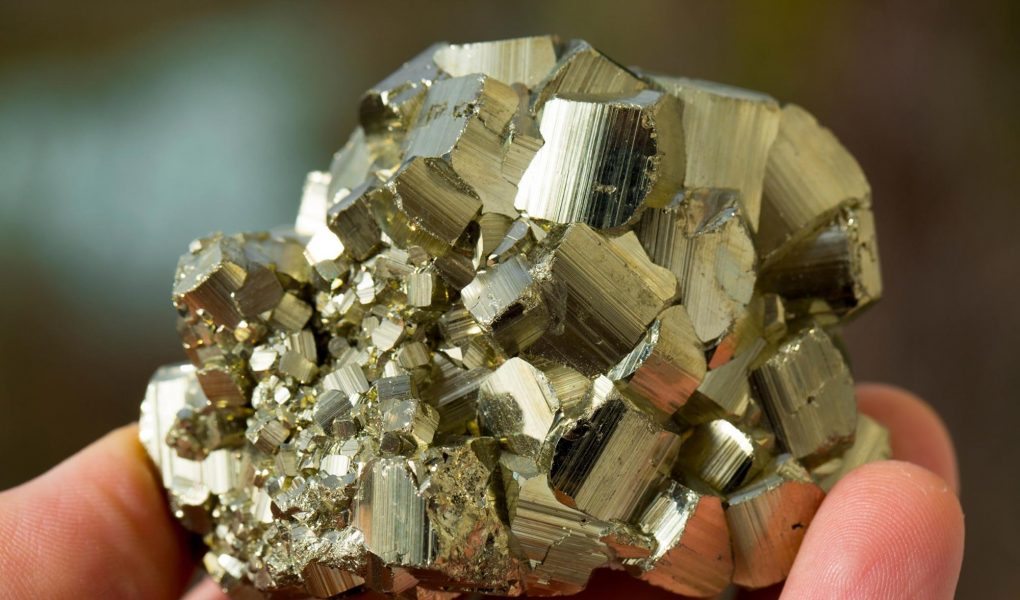Do you know what is Fool’s Gold? Are you looking for various methods to tell the difference between real gold and fool gold? If yes, then read this blog till the end. It will explain to you everything about the fool’s gold.
What is fool’s gold?
As the name suggests, fool’s Gold is a metal that resembles real gold in appearance. Commonly, the metal Pyrite is called the fool’s gold. The reason is that its worth is extremely low as compared to real gold. Yet, the appearance of Pyrite can fool anyone. It is the same in appearance as real gold.
The origin of the word “fool’s gold” dates back hundreds of years ago. Gold buyers used to consider pyrite the same as gold. But in actuality, it was just their ignorance and foolishness. The two metals vary a lot in worth. So their foolishness led to the word fool’s gold coming into being.
Some other minerals that fool you
Other than pyrite, two more minerals are also considered fool gold. These are Chalcopyrite and phlogopite mica.
Chalcopyrite resembles pyrite to some extent. But the hardness and specific gravity are relatively lower. You can use the same test for differentiating chalcopyrite and pyrite from gold.
Phlogopite mica flakes flash like real gold. Particularly, these flakes can fool an inexperienced person performing gold panning. You can apply pressure with a pin to check the difference. The real gold flake will bend due to pressure while the phlogopite mice flake will break.
The difference between the fool’s gold and real gold
The appearance of real and fool’s gold is the same. But the structure of both varies a lot. Also, real gold is a precious and worthy metal. Fool’s gold is nothing in worth when compared with real gold.
As all of us know, real gold is metal while fool’s gold or pyrite is not. It is a mineral having a crystalline structure.
There are many differences between fool’s gold and real gold. Here we have mentioned some of these differences.
- Ductility
Gold is ductile while fool’s gold is not. On applying pressure with a pointed object, gold will bend due to high ductility. The fool’s gold will break instead of bending.
- Hardness
The hardness of real gold is far lesser than that of fool’s gold. The Mohs hardness of gold is 2.5 while that of Pyrite is between 6 and 6.5.
- Streak
The streak colors of real gold and fool’s gold vary. For real gold, the streak color is yellow. For Pyrite, you will observe the greenish-black streak color.
How to tell the difference
It is not a daunting task at all to check whether you have the fool’s gold or the real gold. Some simple tests can easily tell you the difference. And the best part? These tests are super simple. No experience is required to tell the difference between real gold and the fool’s gold. Anyone can perform these tests at home to find this difference.
So let’s move toward the tests that will help you tell the difference!
- Check for the tarnish
Real gold will never tarnish. Its surface will always look bright. Pyrite can have tarnish on its surface. So check for the tarnish when looking for the difference.
- Examine the color
The color of gold lies somewhere between golden to yellow. On the other hand, there will be a brassy touch in the color of pyrite.
- Look for the striations on crystals
Real gold crystals will never have lines or striations on their surface. If there are fine lines on the gold crystal, you are likely to have fool’s gold.
- Check the specific gravity
There is a huge difference between the specific gravity of real gold and fool’s gold. For real gold, the value of specific gravity is 19.3. For pyrite, the value is approximately 5. The difference is very large and can be easily detected. When the gold is alloyed with other metals, its specific gravity reduces. However, it never decreases so much that it becomes equal to that of pyrite.
- Perform the smell test
Simply smell both the specimens to spot the difference. The pyrite will smell like sulfur. The gold, we all know, is odorless. You will not sense any smell if the gold is real.
- Streak test
To perform the streak test, take white porcelain. Rub the metal against it. if the gold is real, the mark on the porcelain will be yellow. If it is fool’s gold, you will observe a dark green or black mark.
- Scratch test
Use copper to perform the scratch test. Wondering why copper? Because the hardness of copper lies between that of pyrite and gold. The hardness of copper is higher than gold. However, it is lower than the hardness of pyrite.
So when you scratch the specimen with copper, you will easily spot the difference. If you observe any mark on the copper, your specimen will be fool’s gold. But if your specimen itself gets scratched, then it is the real gold.
- Observe the shape
Since the fool’s gold is a crystalline mineral, its shape will have sharp edges. For the real gold, you will not observe any sharp crystalline corners. The texture of real gold is very smooth, and it usually has round edges.
- Check the shine
Gold always glitters no matter whether it is placed in a dark room or light. The case is different for the fool’s gold. It will glitter when placed in the light. When placed in a dark place, the fool’s gold will never glitter or shine.
Conclusion
Seems like you are pretty clear about the ways to tell the difference between real gold and fool’s gold. Hope this article helped you clear all your confusion in this regard. Are you thinking of buying some personalized jewelry? If yes, then visit our store to check out our amazing collection. Our products will touch your heart and add a touch of elegance to your personality.



